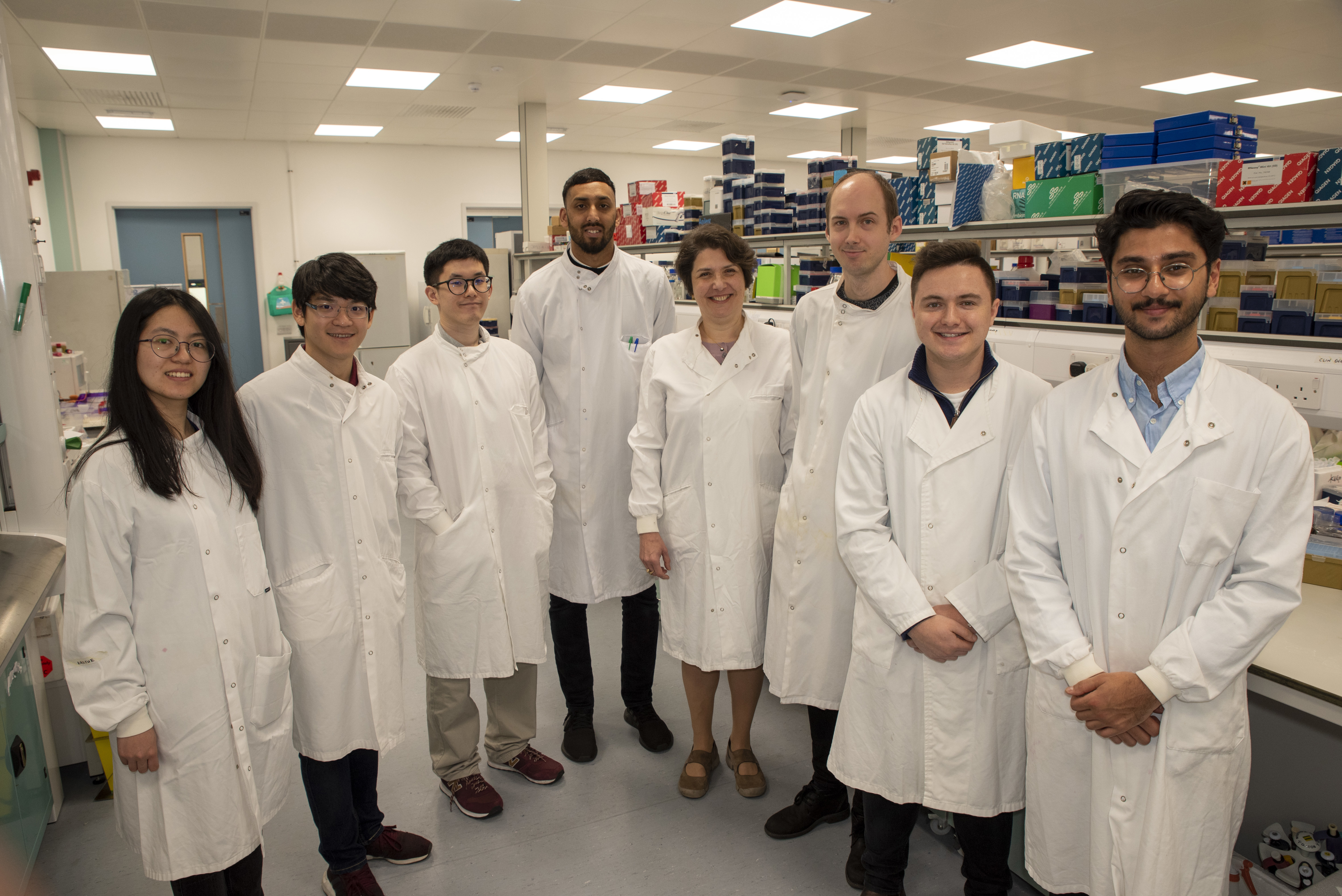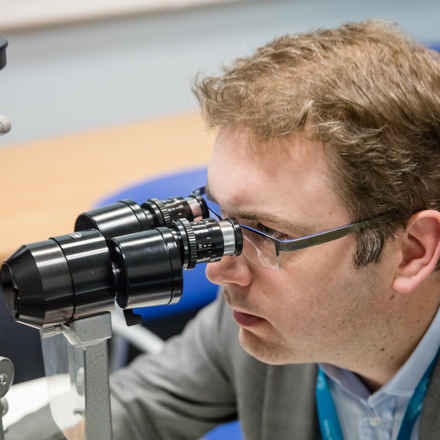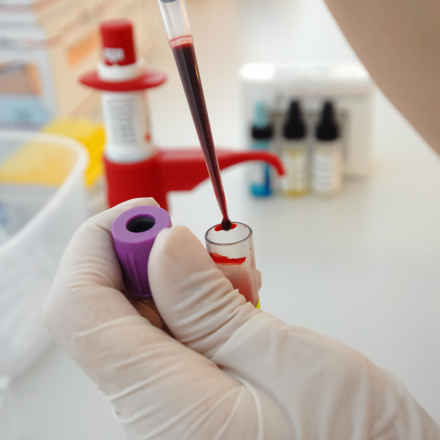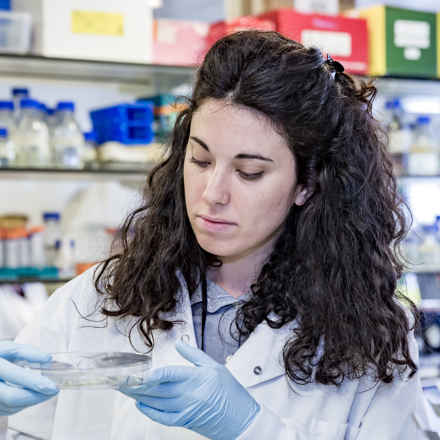
Our research projects
Since 1987 the Macular Society has invested around £10 million in over 100 research projects. Each year we invite applications for research grants, PhD studentships and seedcorn grants which are assessed by our Research Committee.
Research grants
Research grants are for projects of up to three years duration and up to £250,000, which covers everything from laboratory chemicals to salaries.
PhD studentships
A PhD studentship funds a student to undertake a three year research project. The student submits a thesis for qualification of the degree, which is the highest level of academic degree attainable.
Seedcorn projects
A seedcorn grant is funding of up to £25,000 to generate preliminary data to advance innovative and novel ideas.

Using gene therapy to investigate the pathways involved in AMD progression
This project will investigate the role of the ageing process in vision decline, with the aim of identifying novel targets for further research into potential therapies. It will use gene editing to create a variety of models of the retinal pigment epithelium (RPE), the cell layer that provides photoreceptors with nutrients, to examine what is happening at a molecular level in the progression of age-related macular degeneration.
Find out more

Multi-dimensional imaging in early AMD
This project will use new technology called ‘imaging mass cytometry’ to develop a means of looking into the several components involved in the switching on and off of the part of the immune system called the complement system.
Find out more

How the genetics of fat metabolism influence AMD development
Establishing the link between the Apolipoprotein E gene and lipid (fat) metabolism and learning what effect this has on the development of AMD.
Find out more

Using Artificial Intelligence to predict AMD progression
New AI programme to understand the development of AMD and the progression of wet AMD.
Find out more

Creating a blood test to detect early AMD
Understanding how AMD cells communicate and if this can be detected in blood samples.
Find out more

New treatment option for wet AMD
Looking at a new protein for treating those with wet AMD who do not respond to anti-vascular endothelial growth factor (anti-VEGF) drugs.
Find out more
